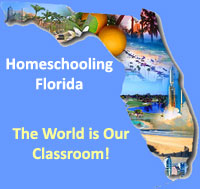Photo Opportunity: Using Photography to Teach Science
Photography presents many wonderful opportunities for teaching science. Children are naturally inquisitive, and as a result, the scientific process is very similar to their own process of exploring and discovering things.
There are many ways to use a camera from a very early age to practice the steps in the scientific process and to formalize their process of inquiry – collecting data, comparing and contrasting, studying cause and effect, documenting change over time, and presenting conclusions.
 Model this for your child with a personal example. Use photos to document when your child loses their first tooth, and take photos of their mouth every week to show how the new tooth is coming in. These are simple ideas for younger children, however it’s easy to adapt this approach for an older child and incorporate it into their current science curriculum.
Model this for your child with a personal example. Use photos to document when your child loses their first tooth, and take photos of their mouth every week to show how the new tooth is coming in. These are simple ideas for younger children, however it’s easy to adapt this approach for an older child and incorporate it into their current science curriculum.
For example, if your older child is in 4-H and has an animal that they are raising, they can document different stages of growth, common traits in different animals, etc. They can document changes in plants over time, the impact of pests on garden crops, or the stages of metamorphosis of a butterfly. Other simple things you can do is have a day where you go out “into the field” and photograph things you find. You can set a theme, or leave it open. The idea is to have fun and nurture the skills of observation, analysis, comparing & contrasting, identifying, describing and quantifying with a camera.
 An excellent resource for using photography to nurture scientific inquiry in your child is a book written for teachers called Picture Science: Using Digital Photography to Teach Young Children by Carla Neumann-Hinds. It has many sample projects for children to incorporate into their daily science lessons. As the author explains, “… children need opportunities to be active, to investigate, and to talk about what they discover. Children learn through their senses, so [the] goal here is to provide them with many concrete, sensory, first-hand experiences.”
An excellent resource for using photography to nurture scientific inquiry in your child is a book written for teachers called Picture Science: Using Digital Photography to Teach Young Children by Carla Neumann-Hinds. It has many sample projects for children to incorporate into their daily science lessons. As the author explains, “… children need opportunities to be active, to investigate, and to talk about what they discover. Children learn through their senses, so [the] goal here is to provide them with many concrete, sensory, first-hand experiences.”
As a theme unit, there is a lot of science behind the art of photography, and cameras can serve as a platform for learning concepts in chemistry, physics, and biology. Learning how cameras work, from the chemical reactions that enabled film emulsions to first be made, to the development of the first CCD and the most modern advances in digital photography, are all ways to integrate this as a theme.
A photograph is the finished product resulting from the successful implementation of several laws of physics, especially light and waves.
You can explore the anatomy of an eye and compare it to the lens of a camera and learn about their differences and similarities. Basic information about how cameras work can be found in books such as How Things Work (see sidebar), or other books about how modern cameras were developed, many of which are readily found at the library.
Using photography to enhance your science curriculum is a great way to get your feet wet because of the natural ties to the scientific process. This in turn can springboard the use of photography in teaching other subjects, such as writing and math. A camera allows children to interact with their surroundings in a way that no other electronic gadget can. Take advantage of the opportunity this affords, and take the leap into a new world of discovery with your child!
In our next post in this series we will explore how photography can be used to teach language arts and writing.
Lupe Tucker and her husband, Curtis, homeschool their five children in Florida. They publish this site, HomeschoolingFlorida.com and www.Homeschool-Evaluations.com, a portfolio review & standardized testing service. They conduct academic workshops across the country with the nonprofit organization www.KidsAboardWorkshops.org. A lifelong photographer, Lupe is always on the lookout for the perfect shot and is hopelessly addicted to photo books.
